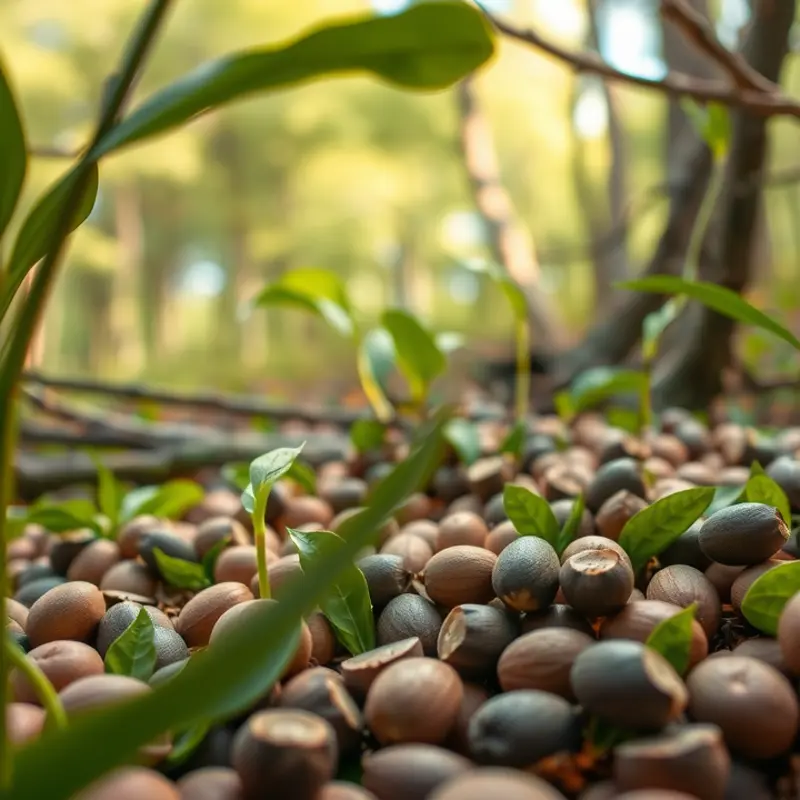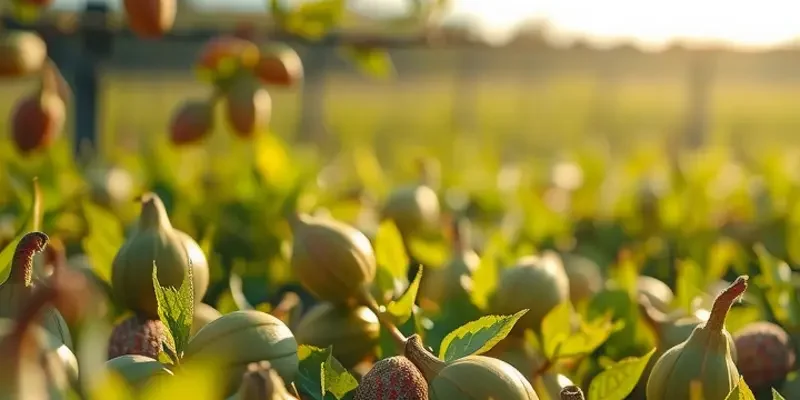Sourcing food ethically is essential for environmentally-conscious choices. Nuts and seeds, rich in nutrients and versatile in the kitchen, support eco-friendly eating. However, not all sourcing methods consider the environment, which can lead to deforestation, loss of biodiversity, and exploitation of farmers. Understanding how to choose nuts and seeds responsibly is crucial. By making informed decisions, you not only support local economies but also contribute to the preservation of our planet. Dive into sustainable ways to enjoy these nutritious powerhouses responsibly.
Understanding Ethical Sourcing: What It Means for You and the Planet

Ethical sourcing is the cornerstone of fostering a sustainable relationship with our planet. When it comes to nuts and seeds, understanding the nuances of this concept can be enlightening. It not only involves caring for the environment but also prioritizes social and economic well-being.
To begin with, environmental considerations are pivotal. The cultivation of nuts and seeds can lead to deforestation, which in turn affects biodiversity and contributes to carbon emissions. Ethical sourcing ensures that farming practices minimize such environmental impacts—such as maintaining forest cover and avoiding harmful agrochemicals—thereby preserving ecosystems. Moreover, sustainable practices include biodynamic farming and agroforestry, which rejuvenate the soil and host a variety of plants, enhancing resilience against pests and extreme weather conditions.
The social aspect of ethical sourcing is equally significant. It relates to the fair treatment of workers involved in the supply chain. Ethical practices ensure fair wages, safe working conditions, and respect for local communities and indigenous peoples. This can empower communities, foster economic stability, and improve the quality of life. Consumers making informed choices can advocate for better labor practices.
Finally, the economic component cannot be overlooked. Ethical sourcing supports local economies by prioritizing smallholder farmers and establishing fair trade systems. These systems ensure that producers get equitable revenue from their crops, which can enhance local economies and lead to more sustainable farming methods.
The impact of unsustainable farming practices is stark. It can lead to soil degradation, reduced biodiversity, and contribute to climate change. Such practices can also cause economic disruptions and social injustices, ultimately affecting global food security.
Transparency in the supply chain is crucial for consumers who wish to make a difference. It allows them to trace the journey of food from farm to table, ensuring the product has been sourced responsibly. Look for certifications that assure ethical sourcing, such as Fair Trade Certified, Organic, and Rainforest Alliance. These labels provide a level of assurance that the product meets established environmental and social standards.
By choosing ethically sourced nuts and seeds, consumers can be part of a global movement towards sustainability. Every purchase decision drives demand, influencing how these products are cultivated and harvested worldwide. For tips on reducing waste and making sustainable choices in your kitchen, you might find it useful to explore eco-smart kitchen storage.
In essence, embracing ethical sourcing is more than a lifestyle choice; it’s a commitment to fostering harmony between our well-being, society, and the planet. It involves making informed choices that support sustainable practices and contribute positively to the world we inhabit.
Practical Steps for Choosing Sustainable Nuts and Seeds

Choosing sustainable nuts and seeds involves a thoughtful approach to their sourcing and consumption. To begin, look for products with certifications like Fair Trade, Organic, or Rainforest Alliance. These labels ensure that the products meet specific environmental and socio-economic standards.
Supporting local farmers by buying from farmer’s markets or through local cooperative models can reduce your carbon footprint. It also helps sustain local economies. If you live in a suitable climate, consider growing your own nuts and seeds. This not only ensures a fresh supply but also contributes to biodiversity in your garden.
Bulk buying is another practical technique to embrace sustainability. Less packaging means less waste, and with nuts and seeds, you often find higher quality and freshness when purchasing in bulk. Consider joining a bulk buying group in your community to share resources and knowledge.
Choosing seasonal varieties is an eco-smart practice too. Nuts and seeds harvested in their natural seasons are less likely to require energy-intensive storage or transport methods. This can be aligned with eco-smart kitchen storage practices, which you can explore further at this eco-smart kitchen storage guide.
Brands that prioritize ethical sourcing of nuts and seeds deserve your support. Research companies to determine if they invest in sustainable practices, like using renewable energy or supporting fair labor conditions. Some brands even offer transparency reports detailing their environmental impact.
Integrating these choices into daily life is a rewarding endeavor. Start by modifying your shopping habits, focusing on sustainability each time you select a product. In the kitchen, create delicious meals with these eco-conscious ingredients. For example, add toasted organic almonds to salads or incorporate chia seeds into smoothies.
By making these mindful decisions, you contribute to a more sustainable food system. The benefits span beyond personal health, positively impacting communities and the planet.
Final words
Adopting ethical sourcing practices for nuts and seeds not only benefits your health but also contributes to the planet’s well-being. By making conscious choices, you can support responsible farming, reduce your carbon footprint, and promote social justice. Whether you’re shopping at the grocery store, visiting a local farmer’s market, or growing your own, every choice you make adds up. It’s about creating a ripple effect of positive change. With the knowledge and practices outlined here, you’re now equipped to embark on a journey of sustainable eating. Together, let’s nurture our planet while enjoying the wholesome goodness of nuts and seeds.








